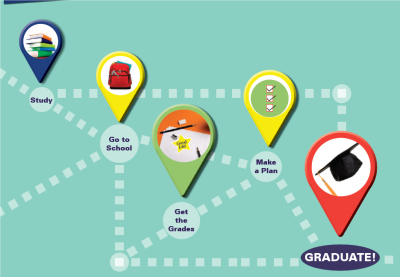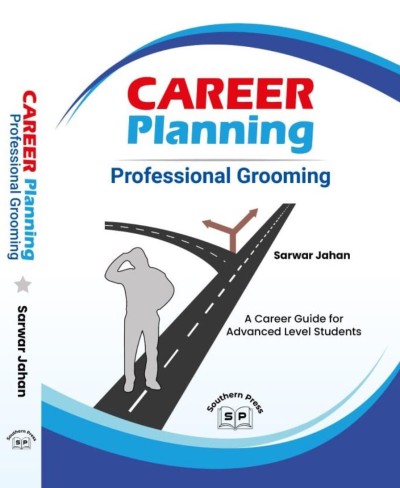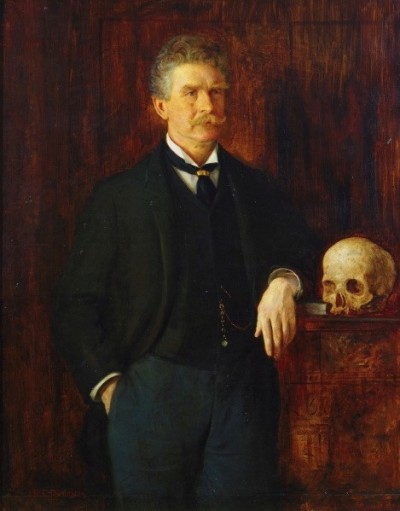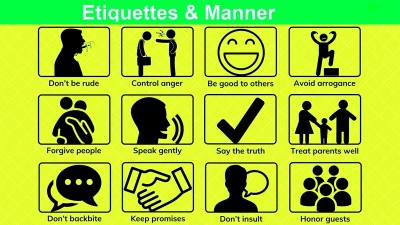Course description
Academic planning means knowing self-abilities, interests and monitoring progress towards the goals. To do this effectively, a student must understand his/her curriculum, graduation requirements, and academic policies. While a student may find some basic information in the website, they should work closely with their faculty advisor to structure their own plan.
To earn a Bachelor's degree, a student must complete a minimum of 120-190 semester hours of academic work, subject to the discipline/major, these credit hours may not include prerequisite courses. Each university has its own individual requirements. Electives are courses that count neither towards general education nor major requirements.
Why need an Academic plan?
Most students do not have any vision. They do not know, where will they be in the next 1…5….10 years?? The academic plan will help the student:
v Establish a goals
v Increase success
v Find direction
v Select the right path
v Save time
v Graduation!
Academic Ranks
Before entering any higher education students should have an idea about Academic Ranks, so they can behave accordingly.
- Instructor Other Titles
- Assistant Professor Division Director
- Associate Professor Chairman/Center Director
- Professor Dean
When should begin plan?
Good planning will take someone where ever they want to be. It is never too late to start an academic plan. To reach Academic goals, an Academic plan will help Find a direction for Select the right path. Student must VISIONING- Where will he or she be in the next 1…5….10 years? While working on academic planning, a student needs to think that what does University prepares him/her for? A higher educational institute prepares a Researcher a career and job-oriented person. Keep in mind; a College/University education without marketable skills prepares students for only the lowest-paying jobs.
Good academic planning means knowing self-abilities and interests and monitoring progress towards the goals. To do this effectively, a student must understand his/her curriculum, graduation requirements, and academic policies. A student may find some basic information on the website; they should work closely with their faculty advisor to structure their own plan. To earn a Bachelor's degree, a student must complete a minimum of 120-190 semester hours of academic work, subject to the discipline/major. Each university has its own individual requirements.
Recent years have seen dramatic changes in the education sector. A university is supposed to be the “home” (“universe”) of everyone (with diverse interests and potentials) for dwelling and growing academically. This program should help fulfill the intellectual actualization need of the “all-rounder” who is interested to play crucial roles (for socio-economic progress) with wisdom and responsiveness. Such positions are involved in making effective decisions for efficient usage of resources by minimizing wastes due to unnecessary overlapping and redundancies. Students come to universities at a critical stage of their development—a time during which they define themselves in relation to others and experiment with different social roles before making permanent commitments to occupations, social groups, and intimate personal relationships. In addition, for many students college is the first sustained exposure to an environment other than their home communities. Higher education is especially influential when its social milieu is different from the environment from which the students come and when it is diverse and complex enough to encourage intellectual experimentation. Students learn more and think in deeper, more complex ways in a diverse educational environment. However, to develop new capabilities that are different from the current knowledge base, a short-term course will not provide the depth and span of knowledge and learning retention that is needed. The difficulty goes up exponentially as additional, interdependent knowledge areas are added to the new learning mix.
Academic Planning Steps
Before taking any plan, students also need to know what kind of degree he or she will achieve, when they admit to their desire institution another word, What does University prepare you for? A Universities job are to Research, create new Career and work. Keep in mind, a College/University education without marketable skills prepares you for only the lowest-paying jobs.
Types of degree offers from the institution are
- Diploma in business or in technology
- Pass courses for bachelor degree
- Honors courses for bachelor degree (for selective students)
Choosing the desire institution must check:
- Course Catalog for course, degree requirements, all required and related information
- Admission status
- Class Schedule
- Grading
- Awarding of Financial Aid
- Billing
- Transcripts
Transfer Credits
- Find the University equivalents to your current and completed courses using the Transfer Credit Center.
- Collect the degree requirements and academic plans for your intended University major.
- Identify your remaining general education, CORE and major requirements.
- Review the academic plans and undergraduate catalog for course sequences and prerequisites.
- Create an academic plan that outlines your remaining courses in a semester-by-semester format.
- Check the academic plan for review.
The academic career pathway begins in the first year and continues throughout the semesters leading up to graduation day. For some, that path is relatively straight and smooth, for others, it can be filled with twists, turns, and even a few rough patches.
Throughout students In University/College careers, they will make many choices related to academic pursuits. A student is not sure of their major or career path at the beginning of their academic journey.
Choice of Major—Consider Your Options
To help you weigh options for your choice of major at your University, ask yourself these questions about each academic department or field you are considering:
The Level of the area to study: Will you enjoy this major for its own intrinsic value?
Level of challenge
• Do you think you can perform well in this field?
• Is your motivation strong enough to enable you to succeed in this major?
• Are you choosing this major because it is easy? Because it is hard?
Department characteristics
• How big is the department?
• How do you relate to other students in this major?
• Are the faculty accessible? Do you seek them out for informal discussions and other interactions?
• Are there activities in the department that bring students together? Are there activities that bring students and faculty together?
Courses within your major
• Will this major help you acquire prerequisites needed for graduate studies you may be considering?
• How many credits does this major require to complete a degree? Do you wish to focus largely on one department, or do you want the flexibility to study in other departments as well?
Global experience: How much does the department facilitate or encourage or accommodate study abroad, research abroad, work abroad?
Internship programs: Are there opportunities for you to get experience in your major that will help prepare you for your potential career?
Skills: Consider what kinds of skills will you develop in this major?
Family, peers, outside influences
How are outside pressures from family, peers, and the job market influencing your decision?
There are some other resources to consult regarding the choice of major such as public libraries and the Internet.
Study Abroad Opportunities & Planning Study Abroad
It is never too early to start thinking about the study abroad experience and start planning for it. Be strategic in thinking about the study abroad possibilities that might benefit you. If the students already have developed an interest in a particular culture or region of the world at freshman year, He/she may wish to start learning the foreign language most commonly used in that culture or region, especially English. The student also might want to explore the international locations of exciting developments in the academic/research fields that interest them. If a student starts to think about study abroad in sophomore or junior year, he/she should still be able to find a study abroad program to fit interests and goals. Also need to know about collaborations program with overseas universities, this way if a student does not want to stay all year long they may take classes or few semesters only depends on the agreement with the university.
Graduate Admission Advising
A student may be considering earning an advanced degree for several reasons, including the opportunity to gain knowledge in a particular field of interest, an interest in expanding career opportunities and increasing earning potential, or postponing a job search until economic conditions improve.
Top Ten Criteria to select a Graduate Program
• Matching your career interests/goals with the program
• Quality of the program Department and faculty strength and reputation in the profession
• Program costs
• Internship or field-work opportunities
• Quality of research facilities, laboratories, and libraries
• Financial Aid resources
• What recent alumni are doing in the field now
• See their website for up-to-date information on the subject.
Considering & Exploring a Professional Career:
Individuals interested in health-related careers, Engineering, law, or business careers should consider the following:
• What is your motivation for entering this career?
• How can you explore this career during your time at University?
• What are your core interests and skills and how do they align with this career?
Purpose of Graduate Study
The primary purposes of research-oriented, thesis-based Master’s programs (e.g., MA & MSc) are:
• To understand thoroughly and think critically about what is known in a particular academic field
• To learn how to conduct research in that field
• To begin affiliating with the academic community of the field
• To understand thoroughly and think critically about what is known in a particular professional field
• To master skills (including research) that are necessary for advanced practice in a particular professional field
• To enhance affiliation with the professional community of the field
Seven Skills Students Need for Future
Critical thinking and problem-solving
Collaboration across networks and leading by influence
Agility and adaptability
Initiative and entrepreneurialism
Effective oral and written communication
Accessing and analyzing information
Curiosity and imagination
Identify What Employers Want
Potential Employers Always Look for Evidence of Your Accomplishments and Experiences. They like to know, where you hold any leadership position. Were You Active in Campus Organizations or Extracurricular Activities? Do You Have Relevant Experiences, Internships, or Part-time Work? Have you Made Good Grades? More You Have of These Experiences, The Better.
List of Career Areas and Occupations
Circle any of the career areas and occupations you’d like to explore. This is not a comprehensive list—it is a place to start.
Arts / Media / Communications
Entertainment On-line Publishing Commercial
Radio Broadcasting Technical Writing Fine Art
Television Broadcasting Museums Photography
Journalism Archivists Performing Arts
Editing / Writing Curators Music
Book Publishing Architecture Design
Magazine Publishing Culinary Arts Arts Administration
Business
Marketing Accounting Hotel Management
Advertising Sales Insurance
Public Relations Management Consulting Fashion Industry
Business Development Human Resources Retail
Finance Real Estate Sports Industry
Four-Year Academic and Career Plan
The academic career pathway begins in the first year and continues throughout the semesters leading up to graduation day. For some, that path is relatively straight and smooth, for others, it can be filled with twists, turns, and even a few rough patches. Regardless of how students' Seminole journey develops, advisors from the University Career Center should offer assistance.
Students' success depends on receiving the right information and support along the way. Each phase of academic and career development presents its own areas of focus from selecting a major at the beginning of your academic career, to landing a great position upon graduation.
The Career guide has been written with the different phases of a student's career and academic progress in mind. It is divided into four sections that represent each academic year. Within each segment is a list of specific steps students can take to stay on track with his/her progress at University. It is presented in a checklist format, so students can work through the steps that correspond with the academic level. Many of the items require the participation of career or academic advisors, who are available to help at any point along the way.
4-year Academic Planning worksheet
Freshman Years: Academic Planning Table
Sophomore Years: Academic Planning Table
Area
Spring
Credit
Summer
Credit
Fall
Credit
Spring
Credit
Summer
Credit
Fall
Credit
Acceptance Criteria or Prerequisite
Acceptance Criteria or Prerequisite
General Education (GEd)
General Education (GEd)
General Education (GEd)
Minor/Elective
Total Credits
Freshman & Sophomore Years: Career Exploration & Extracurricular Planning Table
1st Year Spring
1st Year Summer
1st Year Fall
2nd Year Spring
2nd Year Summer
2nd Year Fall
Record about
your Academic &
Career exploration
Find tutoring for your courses
Join campus club
Review and update
your list of strengths
Assess your
computer skills
Know when to apply to your major
Start a list of your
skills and strengths
appointment
with academic
advisor
Discuss updated
plan with advisor
Continue dialog with
academic advisor
Attend Job Fairs,
Continue dialog with
advisor
search What skills will you need for the 21st Century?
Attend
Learning Workshop
Attend Job
Fair, Look for campus job
learn how to build resume, cover letter,
research companies
Talk to an Alumni
Mentor
Practice public
speaking
Talk to professionals
in fields that you find interesting
Volunteer on
campus or in your
community
Take courses to
prepare you for
Undergrad research
Have you completed
requirements for
your intended
major?
Do a practice
interview with
Career Services
Review Catalog for majors & minors
Review your
academic plan
Take Career Planning course
Evaluate your
academic plan
Take part in group projects
Evaluate your
academic plan
Junior & Senior Years: Academic Planning Table
Junior Year: Academic Planning Table
Senior Year: Academic Planning Table
Area
Spring
Credit
Summer
Credit
Fall
Credit
Spring
Credit
Summer
Credit
Fall
Credit
Acceptance Criteria or Prerequisite
Acceptance Criteria or Prerequisite
General Education (GEd)
General Education (GEd)
General Education (GEd)
Minor/Elective
Total Credits
Junior & Senior Years: Career Exploration & Extracurricular Planning Table
3rd Year Spring
3rd Year Summer
3rd Year Fall
4th Year Spring
4th Year Summer
4th Year Fall
Who is on your
Career Network List?
Become a tutor
Update and review
your skill & interests
Internship
Make preparations
for graduate school
Apply for Graduation
Continue dialog with
academic advisor
Find articles on Hot
Topics or New
Trends in your field
Internship
Evaluate your
academic plan
Enter competition,
for your field
Work with faculty on
undergrad research
project
Look at current job
openings to assess
skills & backgrounds
required
Prepare for the
world of work
Prepare for the
world of work
Schedule
informational
interviews with
people in areas of
interest
Schedule Practice
Interview
Take leadership
roles in clubs,
organizations
Schedule
informational
interviews with
people in areas of
interest
Attend Financial
Planning workshop
Career Development Timelines
For tips on how to manage professional development at each stage of a degree program, use the timeline below.
Freshmen: Do You Have the Time?
The first year of higher education is an exciting transition. The career clock focus of the first year is on exploring and selecting the major. Choosing a major involves several steps that include getting to know yourself, understanding self-interests and abilities, and narrowing a list of possible major choices. Academic advising and career planning offer personalized attention that will help with this major decision.
Academic Planning Make an initial selection of majors. For more information about majors visit your academic institution. To declare or change your major, contact the department for Advising.


















